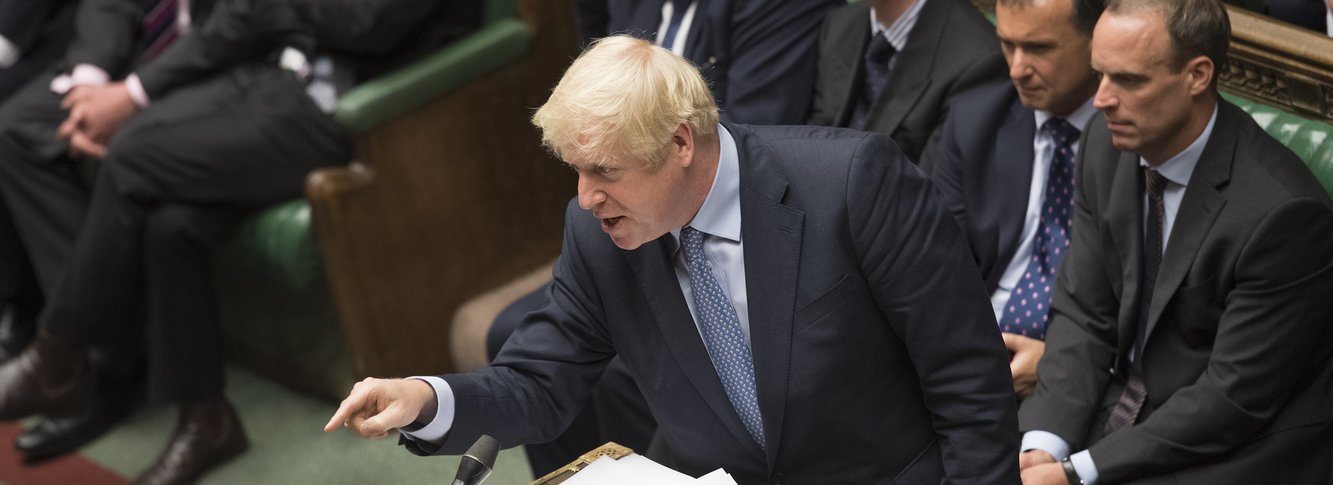| 6 mins read
Our newly elected prime minister Boris Johnson is infamous for finding it difficult to tell the truth. The general election campaign was littered with untruths. Although it’s hard to be certain, one study suggests that many of the Conservative party’s social media interventions were misleading. So, does being trustworthy not matter anymore? Can you win, and not be trusted or trustworthy?
Trust of politicians and Brexit
We would not rush to that view. Making a trust judgement for a voter is a complex process driven by a variety of factors. If you say you trust someone to deliver something, what are the criteria you are likely to use? Research suggests that citizens commonly ask two questions: Does the leader have the competence to deliver? Do she or he have the integrity to mean what they say? Trust judgements can therefore develop a specific – rather than general – focus.
Here is where trust did matter in 2019. On delivery of Brexit, Boris Johnson is trusted. He can deliver and he wants to keep his word. If leaving the EU was your number one issue, then the leader of the Conservatives passed with flying colours.
As the figure below shows, it was in the area with most Leave supporting voters that saw the biggest shifts to backing Boris. The blue and red note Conservative and Labour performance respectively, with the dashed and dotted lines the linear fit.
Labour’s leader had a lot more trouble in generating trust on the Brexit issue. Many doubted Jeremy Corbyn’s ability to negotiate a new withdrawal agreement and hold another referendum all within a few months of taking office. At the same time, insisting that on the biggest issue of the election he would be neutral seemed to lack credibility – especially on such a polarised issue. Some suspected he was a closet Leave supporter; others suspected he was a closet Remainer.
Many just thought that Labour’s position was vacuous, reflective of weak leadership. Corbyn failed both the competence and integrity trust tests. Others go further and argue that this lack of clarity fostered distrust of Corbyn and his policy intention, creating a lose-lose type of situation where both Leavers and Remainers seemed to believe he was misrepresenting his position, with both sections of a divided electorate seemingly believing he would ultimately end up acting against their interests.
Labour’s trust problem
Beyond Brexit specifically, trust judgements also have a general flavour. These factors also shaped the election outcome. Labour’s trust problem, especially in towns and suburbs, stretches back a long way, and as the table below shows only in major cities did Labour outperform the Tories in the 2019 election.
There is the sense of neglect created by the rather strident embrace of globalisation in the Blair and Brown years that drove economic dynamism in the South and cities but had a negative impact elsewhere.
Neither Ed Miliband nor Jeremy Corbyn were viewed as having the competence to be effective leaders. The perceived cultural, metropolitan and narrowness of Corbyn’s world view reaffirmed the view that Labour was no longer to be trusted to support and care for large swathes of what were previously heartlands in the East Midlands and North East.
The Conservatives too still face a general trust challenge. As the prime minister put it after his victory thanking Northern voters for their support: “Everything that we do, everything that I do as your Prime Minister, will be devoted to repaying that trust”. ‘Getting Brexit done’ formally is different to delivering the benefits of Brexit to those communities that have bought the mantra of ‘taking back control’.
The modest adjustment to previous austerity constraints on public spending and services mean that changing peoples’ lives for the better will be difficult to deliver. So far, there is a vacuum in Conservative policy in addressing these issues. They have won the trust battle, but may struggle to win the war.
The future of trust in politics
And what of the state of political discourse? We do not know for sure that social media messaging works, but we can probably assume that the strategy of the Conservatives to focus on the narrative rather than fact checking will be copied. Politics looks set to a have a trust deficit for a while yet.
Is the future for parties to accept that citizens do not believe them in general; and for citizens to accept that politicians are not trustworthy? The latter is particularly an issue for our normative understanding of politics. It leads to the strange position that if politicians are expected to be untrustworthy – to lie – then the honest politician may be perceived to lack integrity. That voters may be more willing to trust the untrustworthy, because at least they are authentic about it.
Another path for trust decisions is that voters focus on specific not general judgments. Choosing a leader because they can identify one important issue on which they might deliver. If the trust formula trust is: A trusts B to do X. The question is: what will be the next X?




